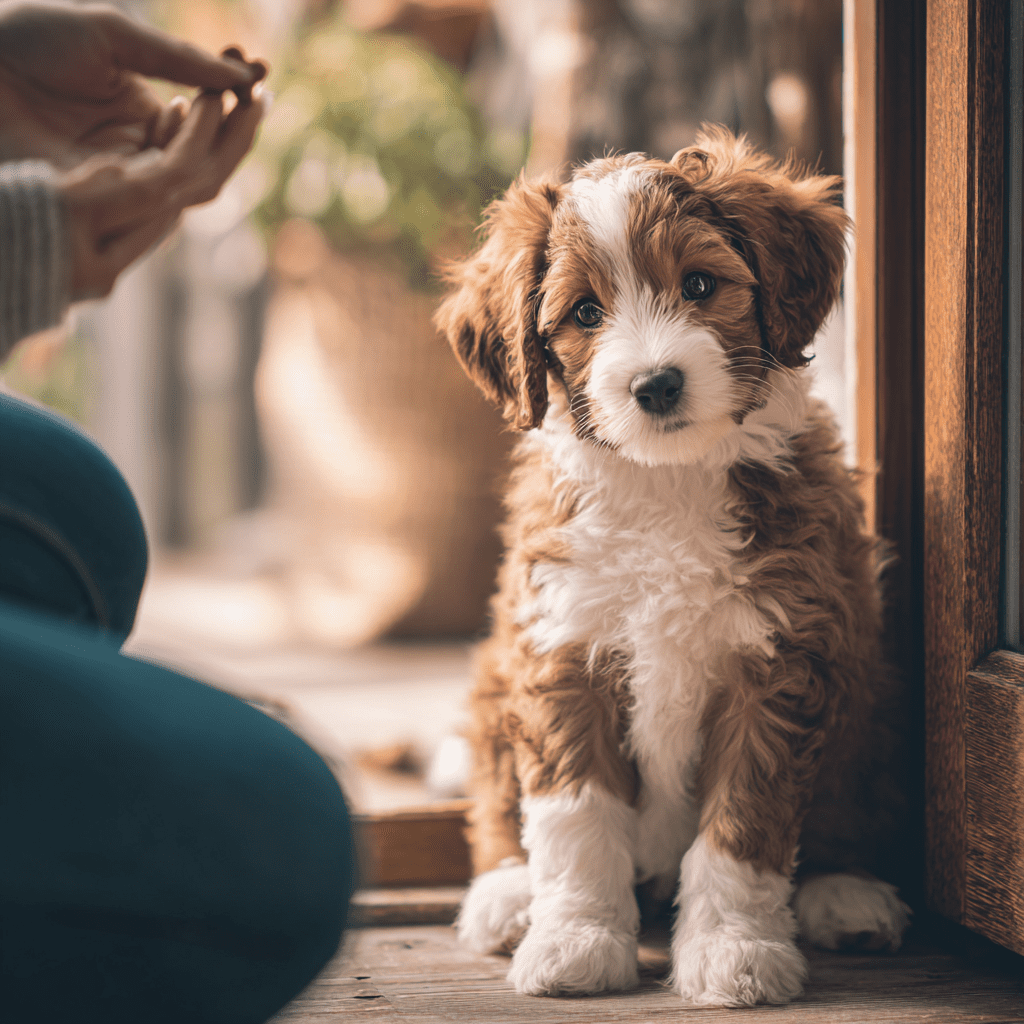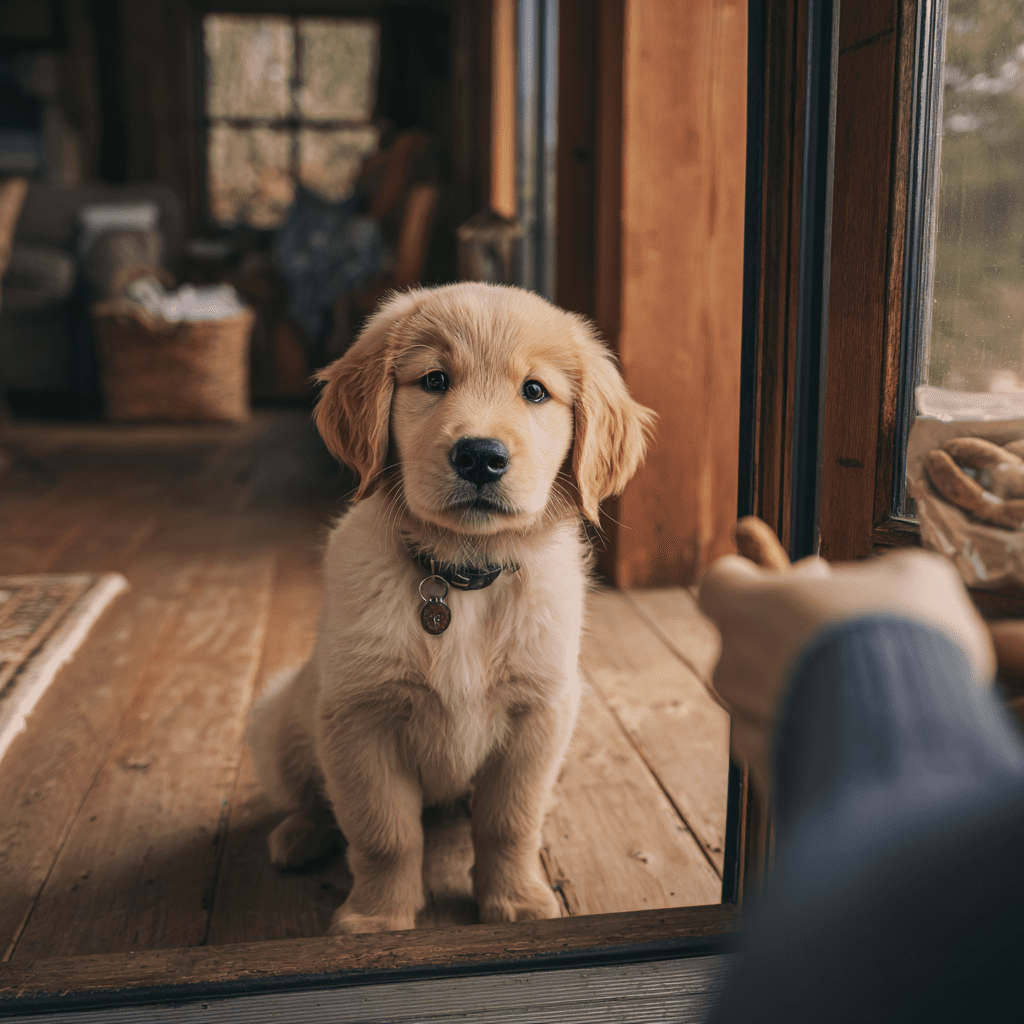Introduction: The Challenge of Housebreaking
Bringing home a puppy is an exciting milestone, but along with the joy comes one of the first big challenges—housebreaking. Potty training isn’t always easy, and mistakes are common. New owners often underestimate the patience and consistency needed, leading to accidents and frustration.
But here’s the good news: housebreaking doesn’t have to be overwhelming. By understanding what not to do, you’ll save yourself stress and set your puppy up for success.
Let’s explore the biggest mistakes puppy owners make when housebreaking—and how to avoid them.
Mistake #1: Expecting Too Much Too Soon
Puppies don’t have full bladder control until about 4–6 months of age. Many new owners expect their pup to be accident-free after just a week or two of training.
The Fix:
Be realistic. Puppies need frequent potty breaks—every 1–2 hours during the day, plus after eating, drinking, and playing. Celebrate small victories instead of expecting perfection overnight.
Mistake #2: Inconsistent Routine
Housebreaking relies heavily on routine. Skipping potty breaks, changing feeding times, or being inconsistent with cues confuses your puppy.
The Fix:
Stick to a schedule. Take your puppy out:
- First thing in the morning
- After meals
- After naps
- Before bedtime
Consistency builds habits, and soon your puppy will naturally anticipate when it’s time to go outside.
Mistake #3: Punishing Accidents
One of the most harmful mistakes is scolding or rubbing a puppy’s nose in their mess. Punishment only creates fear and anxiety—it doesn’t teach them what to do.
The Fix:
Instead of punishment, use redirection. If you catch your puppy mid-accident, calmly interrupt with a clap and take them outside immediately. Reward them heavily when they finish outside. Over time, they’ll associate outdoors with positive outcomes.
Mistake #4: Not Supervising Enough

A puppy left unsupervised indoors is almost guaranteed to have accidents. Many owners give too much freedom too soon.
The Fix:
Use management tools:
- Crates: Provide a safe space where puppies won’t want to soil.
- Baby gates: Limit access to rooms.
- Leash indoors: Keep your puppy tethered to you so you can watch for signs (circling, sniffing, whining).
Supervision prevents accidents and speeds up training.
Mistake #5: Forgetting to Reward Outdoors
It’s easy to take your puppy outside, let them potty, and then go back inside without rewarding. But for puppies, the reward is what reinforces the behavior.
The Fix:
Keep treats by the door and reward immediately after they finish outside. Praise enthusiastically—make going potty outdoors the best part of their day.
Mistake #6: Using the Wrong Cleaning Products
Even after cleaning, the smell of urine can linger, encouraging repeat accidents. Many owners use regular cleaners that don’t remove pet odors effectively.
The Fix:
Always use an enzymatic cleaner designed for pet messes. These break down the odor at a molecular level, preventing your puppy from being drawn back to the same spot.
Mistake #7: Giving Too Much Freedom Too Soon
Owners sometimes allow puppies free reign of the house before they’re fully housebroken, which almost always leads to more accidents.
The Fix:
Expand your puppy’s freedom gradually. Start with one room, then increase space as they demonstrate reliability. A slow, structured approach prevents setbacks.
Mistake #8: Ignoring Crate Training
Some owners avoid crate training, thinking it’s cruel. In reality, crates are one of the most effective tools for housebreaking when used properly.
The Fix:
Introduce the crate as a safe, cozy den. Use it for naps, bedtime, and when you can’t supervise. Puppies rarely soil where they sleep, making crates excellent for teaching bladder control.
Mistake #9: Inconsistent Commands
Using different phrases—“go potty,” “do your business,” or “hurry up”—confuses puppies. Consistency in language is key.
The Fix:
Pick one phrase and stick to it. Say it each time you take your puppy outside so they associate the cue with the action.
Mistake #10: Not Being Patient with Nighttime Training
Many owners expect puppies to sleep through the night without potty breaks too early. Puppies simply can’t hold it for 8 hours in the beginning.
The Fix:
Set an alarm for one or two bathroom trips during the night. As your puppy grows, they’ll gradually be able to last longer until they sleep through without accidents.
Signs Your Puppy is Learning
- Fewer accidents indoors
- Waiting by the door
- Barking or whining when they need to go out
- Consistently using the same outdoor potty spot
Celebrate these milestones—they’re proof your patience is paying off.
The Role of Patience and Consistency
Housebreaking isn’t just about teaching potty habits—it’s about building trust. When you guide your puppy with patience, consistency, and kindness, you’re not only shaping behavior but also strengthening your bond.
Every puppy learns at their own pace. Some master housebreaking in weeks, while others take months. What matters most is that you stay committed and supportive.
Conclusion: Avoid Mistakes, Build Success
Housebreaking a puppy can be frustrating, but it doesn’t have to be. By avoiding common mistakes—like punishing accidents, skipping routines, or giving too much freedom—you’ll make the process smoother and less stressful.
With time, patience, and a structured plan, your puppy will soon master housebreaking. More importantly, you’ll lay the foundation for a trusting, happy relationship built on understanding and love.
